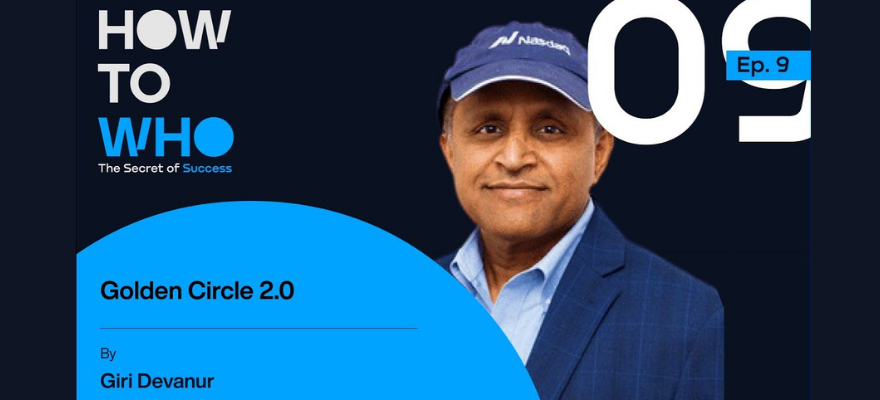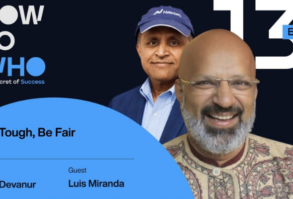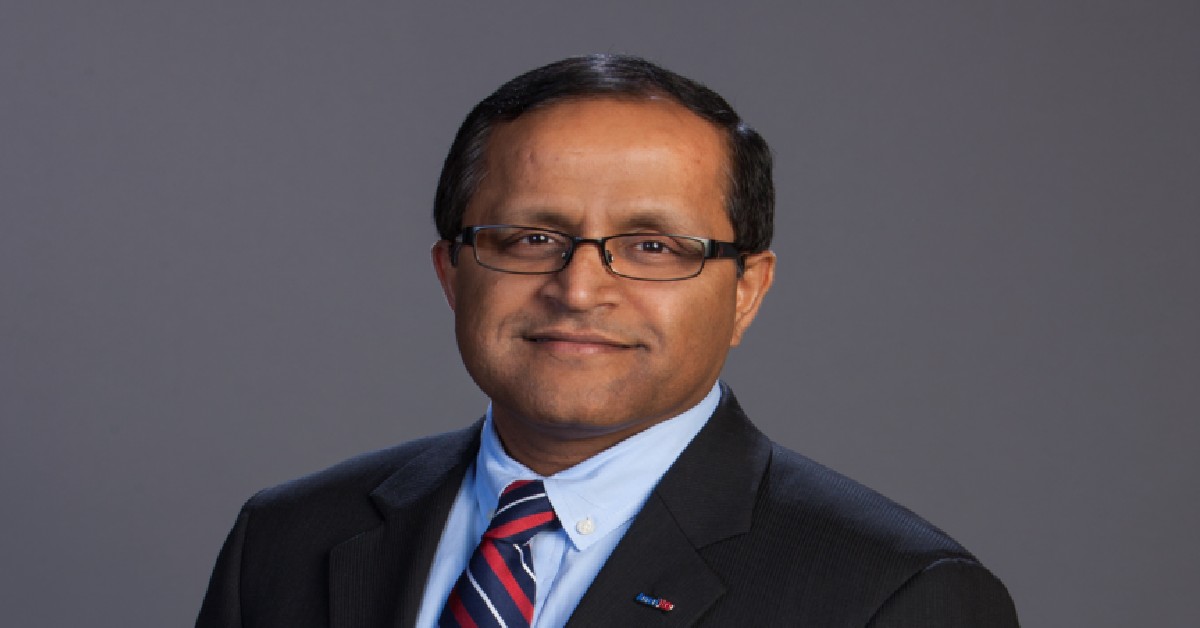Holland Walker (00:05 – 00:24)
Hi, everyone. Welcome back to How to Who: The Secret of Success. Today, Giri has a special episode planned. He’s going to be discussing some important takeaways from a couple of his favorite TEDTalks from Simon Sinek, Bill Gross and Derek Sivers. So please enjoy this special episode with Giri Devanur, our primary host.
Giri Devanur (00:25 – 9:57)
Hello, everyone. This is Giri Devanur with yet another episode of How to Who the Secret of Success. In this episode, we will talk about three TED Talks. The first one is Simon Sinek. He talked about what has become known in the industry circles known as the Golden Circle. In that, Simon talks about three concentric circles. First, a company or an organization has to start with why, then that involves the how and then the what.
By the way, this TED talk has been one of the most viewed TED talks, and I think you’ve got 20 million or something like that. A large number of people around the world have watched it. He even went on to write a book on Start with Why. So he did that and it’s been very well accepted. Totally agree with the concept. But there are some new intricacies that we are learning. That’s what I want to discuss.
The second TED Talk, which is become really popular in the startup world, is a TED Talk by Bill Gross. Here’s the founder of Idealab. He has seen thousands of companies. He did a very short TED Talk, all three TED Talk links, I’m going to drop it in the video at the bottom in the comment section. You guys can watch it.
it in that TED talk, Bill Gross talks about what makes a company successful You would have heard of everybody talking about the team, the market, the product market fit, etc., etc.. He says those are all important, but the success of a company is largely dependent on timing. Is the other name for luck by any chance?
We don’t. So, you know, how do you time anything in life? How do you know, like make sure that your product or your company is in the right time at the right place, doing the right thing, etc.? It is hard. By the way, it’s really hard. Having gone through multiple start ups, I can tell you. Finding the timing is the hardest change.
A few days back, there was an interesting tweet. He was talking about missing a bus by 3 seconds or you are about to go to the airport. You go 5 minutes late. You missed a flight there’s nothing you can do about it. Startup world, Most of the professional life we make decisions. You miss it by a little, and then, you know, you you’re off. In one of the other videos that I had seen, that if you’re flying from L.A. to New York, you miss it by every degree that you miss between L.A. to New York, it moves you by almost 30 to 60 miles away. Given the kind of complexity Bill Gross talks about timing.
How do you get the timing right? That is the second one. The third TED Talk which I will be dropping is by Derek Sivers. He created a very viral kind of TED talk about how do you create a movement? It’s a funny video in a beach. Everybody is lying on top of the hill watching the beach kind of situation. Hundreds of people are lying on the ground.
And this one guy starts with the crazy dance and etc. Derek goes on to explain how a movement gets created to that video. It is not the first guy. It’s the second guy who joins in the crazy guy to begin the dance. And beautiful things happen after that. Then the third joins then the fourth guy.
And after a few minutes, everybody is dancing and there is no music, by the way. People are just dancing. And then finally, if you are standing outside the crowd, you become the crazy person. And that was the power of how do you create that moment? So Derek did a wonderful job of connecting those dots. All of these things lead to the core concept of our podcast, How to Who. We think there is a new order and through three new words for the golden circle of Simon Sinek. The first one is Who. It’s always about getting the right people. Let’s say you have a heart problem. You know, you find the best doctor. Let’s say Elon Musk is wanting to build his next version of the rocket. He’s not going to bring in a painter or, you know, like somebody else, lawyer etc. All of them are needed. But, you know, you need engineers who can build rockets, right? Same story applies. You need to find the right who, which will lead to when. So you assemble the right team, etc. Then the question is when are you building, which is the timing part. But as Bill Gross suggested in his TED talk, it is the timing. If you are early to the market, you are dead, if you are late to the market, it doesn’t matter. Rarely companies can come in later and still be the winners. Today, let’s say you build an a search engine, can you fight against Google? Microsoft has been spending billions of dollars on Bing for a while but they haven’t been able to beat Google.
Google couldn’t figure out Facebook. Facebook couldn’t figure out Instagram. Finally they had to pay $1,000,000,000 to buy. Facebook had to buy WhatsApp like that. It’s if you don’t get the timing. By the way Facebook for the viewers who didn’t know. Google went and bought a company called Orkut back in the day by paying $600 million and they shut their product after a few years they just took a hit on their balance sheet for 600 million. So like that if you don’t time your product, it becomes a huge problem. And finally, where.
The order will be Who, When, Where. Where are you doing it. Let’s say you want to build a great baseball product company. Let’s hypothetically assume. But you know, like if you do it in India, the probability of you succeeding is very low because that’s a cricket playing country.
You want to, you know, like build a great ice hockey product. You start from Saudi Arabia. The probability is very low. You should start in Canada, maybe US. Otherwise, you know, the probability of you succeeding is very low. So where becomes really critical or it’s not just, you know, product companies, as a professional, let’s say you want to, you know, become a movie maker. Would you start in Columbus or will you want to be in LA? You want to be in national politics, obviously, you’re being in Washington, D.C. You want to be in stock market. You know what I mean? Yeah. It’s so critical. Tech: obviously Silicon Valley, then Bangalore, then Shanghai, etc.. Right. So now, like everywhere, there will be an ecosystem related to the industry that you want to participate. Hence, where becomes really critical. So if you nail the who, when and where either your own startup that you are building or your own professional career. This applies to a professional career as well. Who is your mentor? Who is your first boss, who’s your manager, When did you join the company?
If you joined Facebook today, obviously you’re not going to become a billionaire by owning Stock options. Chamath was an early employee. He’d become a billionaire by owning probably a couple of percent of Facebook. And, you know, there are like legendary stories in Silicon Valley that, you know, a artist who did murals on the wall of Facebook, he became a $100 million kind of guy
In fact, I met a priest in Silicon Valley who owns a private jet by just doing rituals and religious ceremonies for startups in the Bay Area, It may sound insane. That is what it’s all about where. And then we discussed enough about that. So this is the updated golden circle of Simon Sinek, Bill Gross and Derek Sivers. Put together those three Ted Talks, and this is the new version 2.0 of the Golden Circle. If you have any questions, please feel free to post it on the comments. I’ll be answering them as we go. Thank you very much. Have a great day.
Holland Walker (09:55 – 10:13)
Thanks to Giri for a special episode of How to Who: the Secret of Success. It was really great getting to look at some other sources like TED Talks that could help contribute to the theme of our podcast. So make sure to like share and subscribe and stay tuned for the next interview.






